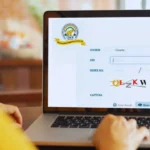In emergencies, knowing how to respond quickly can save lives. Whether you’re at home, at work, or out in public, sudden accidents or medical conditions can happen without warning. Having first aid knowledge is a critical skill everyone should possess, as it allows you to act swiftly and efficiently when every second counts. First aid is not just for medical professionals—it’s for anyone who wants to be prepared for unexpected situations.
The Importance of First Aid in a Crisis
When someone is injured or falls ill unexpectedly, your quick action can be the difference between life and death. First aid isn’t about providing a complete medical solution—it’s about being the first line of defense while waiting for professional help to arrive. By knowing the basic first aid steps, you can help stabilize the person and prevent the situation from worsening. Here’s why it’s crucial:
- It can prevent further injury.
- It can stabilize the person until help arrives.
- It can offer comfort to those in distress.
Having these skills makes you a vital asset in any situation where health or safety is at risk. Everyone should be prepared to step in and offer assistance during an emergency.
Key First Aid Skills Every Individual Should Learn
- CPR (Cardiopulmonary Resuscitation)
CPR is one of the most critical skills to learn. This technique is used to restore breathing and circulation in a person whose heart has stopped. Performing CPR can greatly increase the chances of survival before paramedics arrive. The basics involve chest compressions and rescue breaths, which can help keep oxygen circulating through the body. - Bleeding Control
Severe bleeding from an injury can lead to shock, and in extreme cases, death. Knowing how to control bleeding is essential. This involves applying pressure to the wound, using bandages, and possibly even a tourniquet for severe injuries. Always ensure that the person is safe before administering first aid. - Choking Response
Choking is a life-threatening emergency that requires quick action. Knowing the Heimlich maneuver can help clear the airway and allow the person to breathe again. This skill is especially important for those who care for children or elderly individuals. - Burn Treatment
Burns, whether from fire, chemicals, or electrical sources, can cause severe damage to the skin and underlying tissues. Knowing how to treat burns properly can reduce the severity of the injury. Cooling the burn under running water for several minutes and covering it with a sterile cloth are important first steps. - Handling Fractures
If someone breaks a bone, it’s important to keep the injured area still until help arrives. Learning how to immobilize a limb with splints can help prevent further damage. Always avoid moving the injured person unless absolutely necessary.
When to Call for Help
Knowing when to act and when to call for professional medical help is essential. In many cases, especially when the injury is severe or life-threatening, it’s crucial to call emergency services immediately. However, knowing basic first aid can help stabilize the situation in the meantime.
- Call for help if the person is unconscious, not breathing, or experiencing severe bleeding.
- If the person is alert but in pain, provide comfort and reassurance until help arrives.
Being able to assess the situation quickly and act appropriately can make a significant difference in the outcome of an emergency.
The Role of First Aid Certification
Although knowing basic first aid skills can be learned on your own, taking a formal course is a good idea to ensure you’re fully prepared. First aid certification courses, like those offered by certified organizations, will teach you the correct techniques and give you hands-on experience. These courses typically cover CPR, basic wound care, emergency protocols, and much more.
Certification not only ensures that you’re prepared for emergencies, but it also gives you confidence. Knowing you have the skills to help in a crisis allows you to approach emergency situations with clarity and calmness.
How to Stay Prepared
First aid knowledge is a valuable skill, but it’s important to stay updated. Here are some tips to ensure you’re always ready for an emergency:
- Take refresher courses regularly to stay current with first aid procedures.
- Keep a first aid kit readily available at home, in the car, and at work.
- Make sure your family or coworkers know where the first aid kit is stored and how to use it.
- Practice first aid techniques in controlled environments so you can respond confidently when needed.
Conclusion: Be a Lifesaver, Not a Bystander
Mastering first aid is a skill that can make you a lifesaver in any sudden crisis. It empowers you to act quickly and provide essential assistance to those in need. Whether it’s performing MYCPR NOW , stopping a bleed, or simply providing reassurance, these skills are invaluable. Make first aid training a priority in your life and be ready to face any emergency with confidence and care.
By staying informed and prepared, you can ensure that you’re never just a bystander when someone needs help. First aid saves lives—and it might just be your quick actions that make the difference.







